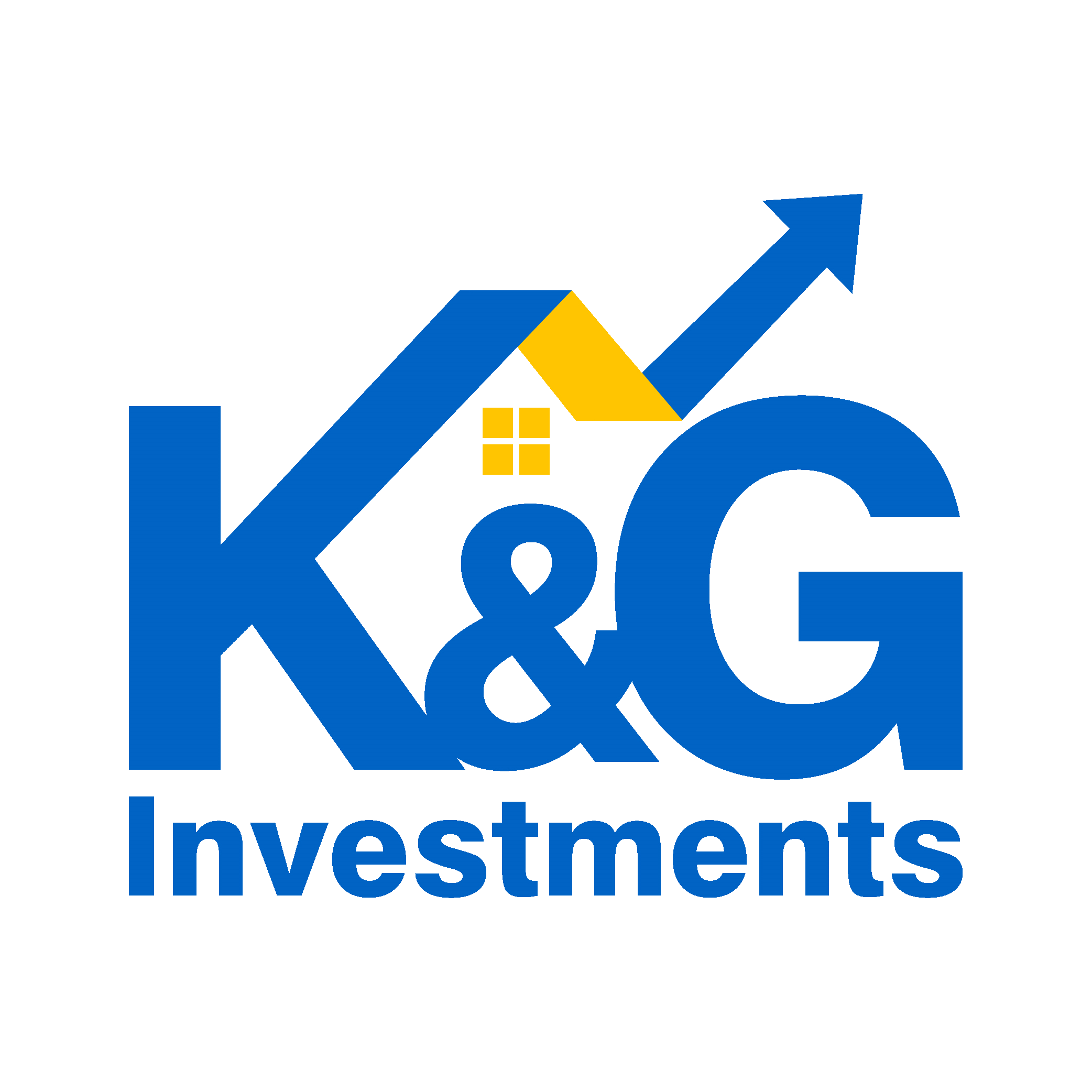
Understanding Closing Costs: A Comprehensive Guide for Homebuyers
Knowing what closing costs look like is key for buyer budgets in Twin Cities home transactions, since those costs show up in the final stages of the deal. Generally, they bundle fees the buyer must cover when the home transfer is finalized.
The list usually includes loan origination and appraisal fees, title insurance, prorated property taxes, and any fees for deed recordings. Buyers do best by sorting the list into fixed and negotiable items early to forecast payments that stick and those they may still discuss.
Working with an experienced real estate agent or mortgage broker gives buyers a backstage view of neighborhood quirks and uncovers hidden savings that might otherwise be missed. Taking it a step further, shoppers should gather and contrast loan estimates from a handful of lenders; this side-by-side analysis makes it easy to spot inflated fees and shifts that, over the life of the loan, can save thousands.
By knowing how each piece of the closing-day puzzle—from inspections to taxes—fits into the full price tag, homebuyers gain the confidence to steer the deal toward the lower end of the scale, making the move to a new Twin Cities address a financially sound step.
If you’re ready to explore your options and want a clear, no-obligation offer, contact us today—we’ll help you navigate closing costs and make your Twin Cities home purchase more affordable.
Essential Tips for Navigating the Twin Cities Housing Market
Successful Twin Cities housing market maneuvering hinges on a deliberate plan to shrink closing costs for any real estate deal. Start by comparing multiple lenders; a few basis points on the interest rate or a wave of minor origination and processing fees alter the equation for total cost and interest paid over the loan’s lifespan.
Next, don’t shy away from a polite request to the seller; when the market favors a swift sale, homeowners sometimes agree to chip in toward closing, free pocket money that stays with you. Finally, keep a finger on the rhythm of Twin Cities ZIP code charts: purchasing in a season when supply exceeds buyer footprints regularly swells your leverage in every line item of the negotiation spreadsheet.
Also, taking the time to double-check the closing disclosure prevents unpleasant surprises; small mistakes on the paperwork or last-minute fees shouldn’t add hundreds to your bottom line. Some buyers consider a no-closing-cost mortgage, which lets you roll fees into a higher interest rate. The initial appeal is immediate, but keep in mind the rate remains for the life of the loan.
Finally, research your municipality’s grant programs or assistance options, especially for first-time buyers. Some cities provide direct credits toward closing expenses, while others cover fees in exchange for property deed restrictions. The program details shift often, but the savings can be significant enough to influence which neighborhood you can afford.
Financial Planning for First-time Homebuyers in Urban Areas
Effective financial planning is essential for first-time homebuyers in urban areas like the Twin Cities to minimize closing costs in real estate transactions. Understanding the intricacies of these costs can significantly impact your overall budget and help you secure a more affordable home purchase.
Start by researching potential lenders who offer competitive mortgage rates and low fees, as this can reduce initial expenses. It’s also beneficial to seek out first-time homebuyer programs that provide grants or assistance with closing costs, often available through state or local government initiatives.
Asking sellers for closing-cost concessions is another innovative way to ease your budget—many will agree to cover a piece of those fees simply to keep the deal moving. Pair that tactic with a well-connected Twin Cities agent who knows the market inside and out. They’ll spot hidden savings, steer you to competitive title and appraisal quotes, and serve as a buffer in price negotiations so you won’t spend more than you have to on services you’ll pay for anyway.
With a granular, forward-looking budget and the right partners in your corner, you can take the existential bite out of financing a home in a bustling neighborhood and turn that dream address into a realistic financial plan.
Common Hidden Fees in Real Estate Closings and How to Avoid Them
In Twin Cities real estate transactions, closing costs often include hidden fees that catch buyers and sellers off guard. Key among these are origination fees, which lenders charge to process a mortgage application.
A little research pays off when looking to keep closing costs in check. Make a habit of comparing lenders—not just interest rates, but fee structures that spell out precisely what you’re paying for. On the title side, charges for title insurance can swing widely, so get samples of the rates and services side by side before deciding.
Appraisal fees can sneak up on you, too. Ask your lender if you can select a less costly appraiser or if the fee can be waived, particularly if you’re refinancing or the property has recently been appraised. Watch for charges labeled “administrative fee” or “documentation fee;” if they seem high or are duplicated on your statement, you’re entitled to an itemized list. Scrutinizing that list typically spots charges you can negotiate away or skip altogether.
To keep closing costs on track and avoid last-minute shocks, Twin Cities buyers and sellers should proactively scrutinize each charge on the closing disclosure. By knowing the details—trust, insurance, recording fees—they empower themselves and can negotiate corrections before signing.
Negotiation Techniques to Lower Your Home Buying Costs

Solid negotiation tactics can chip away at closing costs when buying a house in the Twin Cities. Begin with a deep dive into the latest neighborhood sales—knowing what similar homes really sold for turns headwinds into tailwinds come pricing day. Armed with this intel, you can clearly justify offers without hesitation.
Appeal to the seller to cover a slice of your closing costs through seller concessions; it’s a typical, generous move that can wipe thousands off your up-front cash tab. Expert advice is equally important—partner with a local agent who knows the Twin Cities market inside out. Their refined negotiation skills will direct you to the clearest, unobvious savings, cutting costs without cutting corners.
Plus, take a hard look at every fee on the closing statement. Don’t hesitate to contest any that strike you as steep or irrelevant; many lenders will reconsider application fees or drop minor processing charges if you request. When you thoughtfully haggle over these charges, you chip away at the total amount you’ll cough up at closing, preserving more cash for your move and next month’s mortgage while still landing that perfect house in the competitive Twin Cities market.
K&G Investments helps homebuyers in the Twin Cities save money with fair offers and flexible solutions. We simplify the process, cover many costs, and make closing more affordable and stress-free.
Strategies to Minimize Closing Costs in Real Estate Transactions
Innovative tactics to dial down closing costs can boost your bottom line when dealing with Twin Cities real estate. One effective move is to negotiate with lenders for waived or slashed fees or to compare different lenders to find the most favorable loan terms, since interest rates and closing-related charges tend to differ widely.
It’s also wise to scrutinize the Loan Estimate your lender hands you. Many buyers skim it, but this worksheet shows every anticipated closing expense, making it easy to spot charges that look suspiciously high. Partnering with a seasoned agent who knows the Twin Cities neighborhoods inside and out is another way to find hidden savings; for example, in some deals, the seller might agree to pay a slice of the buyer’s closing costs, which is known as a seller concession.
A buyer should also look for package deals on title insurance and closing services; getting three or four quotes lets them zero in on the best price that still offers acceptable service. Even a modest difference compounds over a lifetime. Another simple move is to schedule the closing for the last few days of the month. Per diem expenses—interest on the mortgage for partial days—tend to shift in the buyer’s favor, typically lowering the final statement by a few hundred dollars.
When Twin Cities purchasers use these steps, they keep more money in the bank and improve their overall budget, allowing a smoother, more brilliant start to home ownership.
The Role of Lenders in Closing Cost Reduction
Lenders are crucial in minimizing closing costs during real estate transactions in the Twin Cities. They can also significantly lower buyers’ financial burdens by offering competitive mortgage rates and reducing origination fees.
House hunters benefit from comparing the proposals of several lenders to lock in the best possible rates and conditions. A few of those lenders might offer lower fees or one-time credits that eat into some of the enormous up-front bills, like the appraisal or the title policy. Stay alert; stacking those little savings often adds up to thousands.
You can often drive down your total closing costs by pressing lenders to waive fees that don’t add value or seem inflated. Meanwhile, keep your ears open for limited-time promotions or cash-back for well-qualified borrowers; these can change from month to month and may enable you to stretch your budget further.
Understanding how lenders structure their fees and being proactive in communication can empower buyers to effectively reduce closing costs when purchasing property in the Twin Cities.
Legal Aspects of Closing Costs Every Buyer Should Know
Understanding the legal aspects of closing costs is crucial for anyone involved in Twin Cities real estate transactions. Buyers ought to realize that closing costs bundle several charges—title insurance, escrow, and attorney fees, chief among them—that function as step-by-step expenses to transfer ownership officially. By paying these fees, the buyer unconditionally hands title to the buyer without threats to the buyer’s rights to the property purchase.
In Minnesota, the buyer has the express duty to examine the lender-supplied Good Faith Estimate that summarizes anticipated closing costs. Moreover, remember that select charges can be, and sometimes are, open to negotiation or may be waived entirely, contingent on the buyer’s final purchase agreement and the lender’s internal guidelines.
Legal disclosures are crucial because they show buyers the property’s condition, so read every page before the ink dries. Hidden assessments, easements, and municipal repairs can cost you money if you scan. A skilled real estate attorney can translate legalese into actionable insight. They know the deal-making gaps in Twin Cities statutes and can find the fine print to renegotiate, helping you reduce those hidden, sometimes high costs.
Comparing Closing Costs Across Different States and Cities

When navigating real estate transactions in the Twin Cities, understanding how closing costs compare to those in different states and cities can be crucial for minimizing expenses. The Twin Cities include Minneapolis and St. Paul, closing costs typically encompass fees for loan origination, title insurance, appraisals, and various administrative charges. Comparing these costs with those in other regions reveals significant variations driven by local market conditions, state regulations, and tax policies.
Certain states tack on extra taxes to real-estate transactions, and that extra screen on the calculator can crank up the closing costs, but Minnesota sits more moderately on that scale. Still, neighborhoods tucked inside the Twin Cities skyline sometimes layer in parking requirements, trash assessments, or inspection fees that can catch an unsuspecting buyer.
Home shoppers who look closer and compare costs line by line can streamline the deal. Negotiating with the title company, haggling with the lender, or even opting for an agent who knows the Jefferson-Cedar quadrant instead of the broad “Twin Cities agent” can shave off hundreds—or occasionally, thousands. The savings aren’t accidental; fighting for them is a drill worth running upfront.
How Market Trends Influence Real Estate Fees
Knowing how prevailing market attitudes shape closing costs is a handy way to keep expenses in check for anyone looking to buy or sell in the Twin Cities. In a seller’s market—characterized by frenzied bidding and thin supply—sellers call the shots and often grant requests, so they can afford to shave costs they’d ordinarily shoulder, like title or origination fees.
Conversely, a buyer’s market translates into plenty of inventory and a backlog of anxious sellers. Under this scenario, buyers gain the upper hand in negotiations and routinely stipulate lower fees or persuade sellers to cover a bigger slice of closing costs, reducing the buyer’s net cash to close. Interest rate trends matter, too. Low rates typically coax a wave of refinancers, prompting lenders to dangle sharper discounts on ancillary charges to win new business, which can produce a ripple effect beneficial to both sides of the transaction.
Additionally, local economic conditions and seasonal fluctuations can impact appraisal fees and title insurance costs due to varying demand for these services. Real estate professionals and cash home buyers in Minneapolis and surrounding cities in Minnesota may also adjust their commission structures or offer flexible terms based on prevailing market dynamics, further influencing overall transaction costs.
Understanding these trends allows Twin Cities real estate transaction participants to approach negotiations strategically and optimize their financial outcomes by minimizing unnecessary expenditures.
Key Questions to Ask Your Realtor About Closing Costs
When you’re gearing up to buy or sell property in the Twin Cities, sit down with your real estate agent and spotlight closing costs. Request a clear, itemized list of costs you’re likely to face in today’s local market.
Don’t hesitate to get specific about your fees, whether we’re talking origination charges, the appraisal, title insurance, or miscellaneous processing fees. Clarifying who pays each charge—buyer, seller, or both—will help you structure stronger negotiation terms.
Talk to your agent about the customary practices in your area and any prevailing laws that might shift these costs. They might also know about local grants, credits, or programs that could trim your outlay. Equally, check with your mortgage broker or lender to see how these fees are treated and if bundling some into the loan amount is allowed.
By having these discussions early in the process, you can identify potential savings opportunities and make informed decisions about your real estate transaction in the Twin Cities.
Tax Implications of Real Estate Transactions and Associated Costs
When navigating real estate transactions in the Twin Cities, it’s crucial to understand the tax implications and associated costs that can impact your closing costs. In Minnesota, property taxes, transfer taxes, and potential capital gains taxes play significant roles in determining the overall expense of a real estate transaction.
Buyers should be aware that property taxes can vary significantly between different areas within the Twin Cities, affecting their long-term financial commitments. Additionally, transfer taxes are levied when property ownership changes hands; understanding these fees can help buyers and sellers budget more effectively for closing costs.
For sellers, capital gains tax is another important consideration if the property’s value has appreciated since its purchase. However, exemptions are available under certain conditions that could mitigate this tax burden.
Whether working with traditional buyers, cash buyers, or investor house buyers in St. Paul and other Minnesota cities, consulting with a knowledgeable real estate agent or tax advisor who understands local regulations and market conditions can help individuals better strategize to minimize closing costs while remaining compliant with all applicable tax requirements.
Understanding Appraisal Fees and Their Effect on Total Expenses

Appraisal fees are crucial in minimizing closing costs in Twin Cities real estate transactions. A significant component of total expenses can vary based on property type and location within the Twin Cities.
These fees are charged for professional evaluations that determine a property’s market value, ensure buyers do not overpay, and ensure lenders have adequate collateral. Buyers can effectively reduce their financial burden by shopping around for competitive rates or negotiating with lenders who might offer to cover these costs.
Opting for appraisers familiar with the Twin Cities market can also lead to more accurate assessments and potentially lower fees. Reducing appraisal fees directly contributes to minimizing closing costs in this region’s real estate deals.
Evaluating Title Insurance Options to Protect Your Investment
When purchasing a property in the Twin Cities, evaluating title insurance options is essential to minimizing closing costs and protecting your investment. Title insurance protects buyers and lenders from potential legal issues related to the property’s title, such as liens or ownership disputes.
To reduce costs, compare various title insurance providers and their premiums, as rates vary significantly between companies. Consider negotiating with the seller to cover part of the title insurance cost or shopping around for bundled discounts when using the same company for both the lender’s and owner’s policies.
Understanding what is covered by standard versus enhanced policies allows you to make informed decisions based on your specific needs and risks associated with the property. Review any exceptions listed in the policy carefully to ensure comprehensive protection while avoiding unnecessary expenses during your real estate transaction in the Twin Cities.
Is There a Way to Avoid Paying Closing Costs?
Many buyers and sellers seek ways to minimize or even avoid paying closing costs when navigating Twin Cities real estate transactions. While eliminating closing costs is challenging, several strategies can significantly reduce them.
One practical approach is negotiating with the seller to cover a portion of the closing costs as part of the sale agreement. This tactic, known as a seller concession, can be particularly successful in a buyer’s market where sellers are motivated to close deals quickly.
Additionally, exploring lender options that offer no-closing-cost mortgages can be beneficial; these programs often roll the closing fees into the loan principal or adjust the interest rate slightly higher to offset upfront expenses. First-time homebuyers should also investigate if they qualify for local assistance programs designed to help with closing costs in the Twin Cities area.
By understanding these strategies and leveraging them effectively, buyers and sellers can significantly reduce their financial burden during real estate transactions in the Twin Cities.
Who Typically Pays Closing Costs in Minnesota?
In Minnesota real estate transactions, closing costs are typically shared between the buyer and the seller, but the exact distribution can vary based on negotiations and local customs. Generally, buyers in the Twin Cities are responsible for covering expenses related to loan origination fees, appraisal fees, and title insurance.
Conversely, sellers often pay for real estate agent commissions and transfer taxes. However, it’s not uncommon for sellers to agree to cover a portion of the buyer’s closing costs as an incentive or negotiation strategy.
Understanding who typically pays these costs in Minnesota can help both parties strategize effectively to minimize their financial burden during closing. Additionally, being aware of standard practices around closing costs in Twin Cities real estate transactions allows buyers and sellers to negotiate more favorable terms that align with their budgetary goals.
What Are the Average Closing Costs in Minneapolis?
Understanding the average closing costs is crucial for buyers and sellers when navigating the Minneapolis real estate market. In Minneapolis, closing costs typically range from 2% to 5% of the home’s purchase price.
These costs include loan origination fees, appraisal fees, title insurance, and taxes. Homebuyers in the Twin Cities must budget for these expenses early in the home-buying process.
Prospective homeowners can reduce closing costs by comparing lenders and negotiating fees. Sellers should also be aware of these costs as they can affect net proceeds from a sale.
Understanding the breakdown of each component in Minneapolis’s real estate transactions allows both parties to make informed financial decisions and seek ways to minimize their financial impact effectively.
How to Get Closing Costs Waived?
Minimizing closing costs can significantly impact your overall financial investment when navigating the Twin Cities real estate market. To potentially get closing costs waived, start by negotiating with sellers who are willing to cover a portion or all of these fees in a buyer’s market.
Collaborating with an experienced real estate agent familiar with Twin Cities transactions can provide strategic insights into which properties or sellers might be open to such concessions. Additionally, consider exploring special loan programs that offer reduced closing costs or lender credits.
Many lenders in the Twin Cities area have specific offers for first-time homebuyers or those meeting certain criteria, which can help alleviate these expenses. By understanding the local market dynamics and leveraging professional guidance, you can effectively reduce or even eliminate closing costs on your next real estate transaction in the Twin Cities.
Looking to sell your house? Whether you want a quick sale, skip expensive repairs, or simply prefer a hassle-free process, K&G Investments has you covered. We provide fair cash offers, care for all the details, and make selling simple. Have questions or ready to get started? Call us at (612) 400-8070 today for a no-obligation cash offer!
| INSURED | INSURANCE PREMIUMS | INSURANCE AGENTS | TAXED | FIRST MORTGAGE | MORTGAGE LOAN |
| PAYMENT | TITLE COMPANY | ESCROW ACCOUNT | ESCROWING | CASH | CALCULATOR |
| HOME APPRAISAL | REAL ESTATE BROKERS | REALTORS | HOMEOWNERS ASSOCIATION | HOMEOWNERS’ ASSOCIATION | HOA |
| CREDIT REPORT | MORTGAGE INSURANCE | PRIVATE MORTGAGE INSURANCE | HOMEOWNER’S INSURANCE | HOME INSPECTION | DOWN PAYMENT |
| UNDERWRITING | TITLE SEARCH | TAX-DEDUCTIBLE | DEDUCTIONS | PROPERTY OWNERSHIP | INSURANCE POLICY |
| INSPECTION | FSBO | FOR SALE BY OWNER | FLAT FEE | DEED | CONTRACT |
| THE NATIONAL ASSOCIATION OF REALTORS | NAR | ARE CLOSING COSTS | CLOSING COSTS FOR | WHAT ARE CLOSING COSTS | OF YOUR CLOSING COSTS |
| MUCH ARE CLOSING COSTS |
Helpful Minneapolis Blog Articles
- Selling Inherited Property With Multiple Owners In Minneapolis, MN
- Intriguing Real Estate Facts About The Twin Cities Housing Market
- Understanding FSBO Costs For Home Sellers In The Twin Cities
- How To Minimize Closing Costs In Twin Cities
- Sell Your House In The Twin Cities When Behind On Mortgage Payments
- FHA Mandatory Repairs in Minneapolis, MN
- Refinance a House After Divorce in Minneapolis, MN
- Inherited House with Sibling in Minneapolis, MN
- How to Stage a House for Sale in Minneapolis, MN
- Selling an Old House in Minneapolis, MN
- Selling a House With Solar Panels in Minneapolis, MN
- How Long Does an Eviction Process Take in Minneapolis, MN

